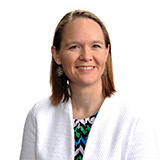R&D Tax Talk – Four-Part Test
Never miss a thing.
Sign up to receive our Tax News Brief newsletter.
R&D Tax Talk
In this episode of R&D Tax Talk, Nancy Imholte, Ryan Coleman and Monique Pham break down the essential four-part test for qualifying for the R&D tax credit. The R&D tax credit is a powerful incentive for companies engaged in research and development activities within the United States. This episode offers an in-depth overview of the four criteria companies must meet to claim the credit: permitted purpose, uncertainty, process of experimentation and reliance on hard sciences.
Key Points:
- The R&D credit requires creating a new or improved business component (permitted purpose).
- The development must address uncertainty and demonstrate a process of experimentation.
- The activities must fundamentally rely on hard sciences such as engineering or computer science.
Coleman, Pham and Imholte discuss the four-part test required for the R&D tax credit. The first part of the test, permitted purpose, requires that a business component — such as a new product, process or technique — be created or improved. Pham explains that companies must demonstrate uncertainty in their development efforts, identifying technical issues or challenges that require solving.
“A key aspect of the R&D tax credit is the process of experimentation,” Coleman explained. “This involves evaluating alternatives through systematic trial and error to eliminate uncertainties.”
Pham noted that the work must be technological in nature, relying on hard sciences like physics or engineering, ensuring the R&D activities are scientifically grounded and not simply cosmetic or administrative. The podcast ended with reassurance that practically all industries engaging in any form of software development could qualify for this R&D tax credit, signaling a broader scope than just laboratory-based scientific research.
For information or assistance, contact us. We are here to help.
©2024
